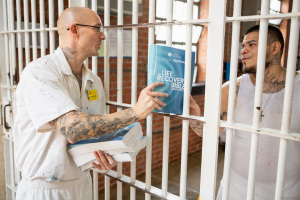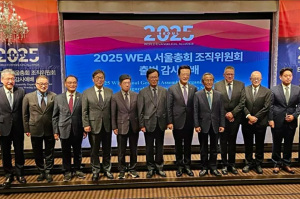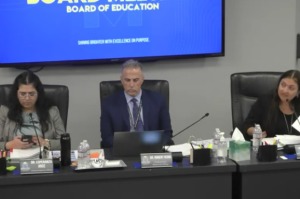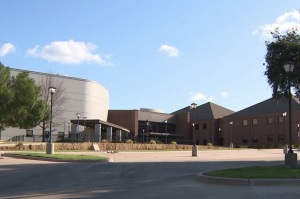Christian leader calls for 'fresh candidate' to lead Republican ticket in 2024

The leader of a prominent Christian conservative organization is predicting that faith-based voters will flock to a “fresh candidate” in the 2024 presidential election as former President Donald Trump and other candidates begin to make their pitches as to why voters should select them as the nominee to take on President Joe Biden.
Although the midterm elections were a little more than a month ago, political observers have already begun to focus on the 2024 presidential election.
With the Iowa caucuses that historically kick off a string of presidential primaries in all 50 states slightly more than a year away, The Christian Post spoke with Bob Vander Plaats of the Iowa-based Family Leader, a socially conservative organization established to “strengthen families by inspiring Christ-like leadership in the home, the church and the government.”
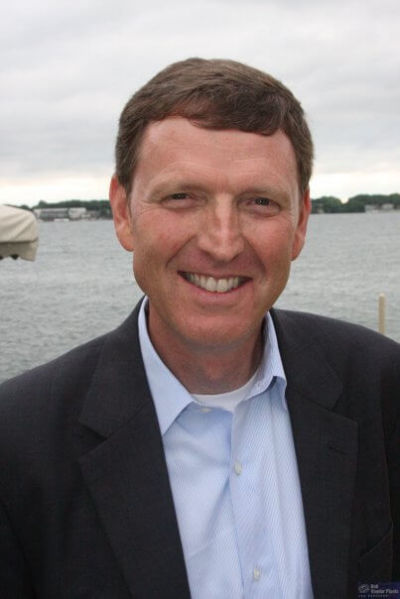
Vander Plaats offered his assessment of the state of the Republican presidential primary, which currently consists of former President Donald Trump. Several other potential contenders are rumored to be weighing presidential bids but none have formally announced.
“The role that we play in Iowa is to have an open and fair playing field for everyone,” he said.
“Six months ago, I would have said if Trump doesn’t run, you’re going to see 10 to 15 candidates running. But if the former president does run, you might have one or two that might throw their hat into the ring but that would be about it,” Vander Plaats added. “Today, you’re seeing that I think there’s going to be a lot of candidates running even with the former president running.”
Vander Plaats attributed this change in the “conservative movement narrative” to the view that Trump has “high hurdles to win election back to the presidency.”
The conservative activist expressed gratitude for “the former president and his Administration for a lot of the good things that they did." But he concluded that “the midterms [did not go] the way we wanted them to,” making it important for conservatives to rally around a “fresh candidate casting a vision for the future that can unite America.”
While Republicans were expected to make significant gains in the U.S. House of Representatives and the Senate due to Biden’s unpopularity, they netted only nine seats in the House and lost a seat in the Senate, thereby enabling Democrats to maintain control of the upper chamber. Republicans also suffered a net loss in the number of governorships they control nationwide and ceded a handful of state legislative chambers to Democrats.
Many cited Trump’s endorsement of candidates poorly suited for general election matchups in swing districts and states compared to other potential contenders, as well as his high unfavorability ratings among the general public as the causes of Republicans' underperformance in the midterms. For his part, Vander Plaats seems to subscribe to this view, at least to some degree.
Vander Plaats, who endorsed Texas Sen. Ted Cruz in the 2016 Republican presidential primaries, contends that the “quality of candidates” explained the wide disparity in results of the midterm elections among states and within individual states.
“For example, in the state of Georgia, [Republican] Brian Kemp did a great job as governor of Georgia, and the people of Georgia elected him overwhelmingly against a very tough candidate: [Democrat] Stacey Abrams,” he said.
On the other hand, Vander Plaats described Republican Senate nominee Herschel Walker, endorsed by Trump in the primary, as “not as strong of a candidate.” Walker lost the election to incumbent Democrat Sen. Raphael Warnock even as Kemp won re-election by more than seven points. The former football star faced carpetbagging allegations and reports that he paid for a former girlfriend to have abortions.
Former Vice President Mike Pence offered similar commentary in an interview with The American Enterprise Institute about his memoir So Help Me God.
“The common denominator that I see … is that candidates that were focused on the future, on bringing proven conservative solutions to the challenges the American people are facing today, did well," Pence said. "Candidates that were focused on the past, particularly those who were focused on relitigating the past, did not do as well. … I think as you look in one race after another, that theme recurs.”
Another narrative has emerged following the midterms insisting that the U.S. Supreme Court’s Dobbs v. Jackson Women’s Health Organization decision, which ruled that the U.S. Constitution does not contain a right to abortion, led to a surge in support for pro-abortion Democrats. Vander Plaats rejected the assertion that abortion and other social issues cost Republicans in the midterms.
“I don’t think that’s true,” he insisted. Florida’s Republican Gov. Ron DeSantis was “exceptionally pro-life and has advanced the pro-life agenda,” Vander Plaats said. DeSantis, he said, also took on the Walt Disney Company “because of the wokeism."
“The state of Florida recognized him as being a strong leader," he said.
DeSantis, who seems to be an early contender in Republican primary polling, won re-election by nearly 20 points in a state Trump carried by less than four points two years earlier, a bright spot for Republicans on what was otherwise characterized as a disappointing night.
DeSantis won the most populated county in the state, Miami-Dade County, which has a large Latino population and normally supports Democratic candidates.
Vander Plaats also identified the election results in his native Iowa as a refutation against speculation that abortion led to a backlash against Republicans. He classified the gubernatorial election as “a resounding endorsement of real leadership led by [Republican] Gov. Kim Reynolds.”
“The Democrats didn’t even really mount a challenge against her. But because of her popularity, we won just about every statewide office, including knocking off the [longtime Democratic] attorney general and a [longtime Democratic] state treasurer as well as … increasing the Iowa Senate to a supermajority and the Iowa House, increasing numbers there. I believe she was the first governor in the country to sign a heartbeat bill.”
Vander Plaats recalled that Reynolds made the “sanctity of human life” a major focus as she ran for a full term as governor in 2018 and “was on record in 2022 saying … she won’t rest until every life is held dear and sacred, including all lives in the womb.”
Reiterating his previous comments about the “quality of candidates,” Vander Plaats stressed that “it comes down to the messenger and the message and how you deliver it.” He shared his belief that Americans will always “embrace a culture of life versus a culture of death any day of the week.”
Vander Plaats named “pro-family, pro-faith, pro-freedom conservatives” whom he viewed as “fresh candidates” heading into 2024. Along with DeSantis, Vander Plaats pointed to former Secretary of State Mike Pompeo as “a guy that’s very prepared to be president” and someone with “a titanium spine” as well as a “winsome way about going about his business.”
Additionally, he cited Cruz, Sen. Tim Scott, R-S.C., former South Carolina Gov. Nikki Haley and South Dakota Gov. Kristi Noem as other sources of 2024 “buzz.”
He said that Arkansas Gov. Asa Hutchinson — who faced blowback for refusing to sign a bill prohibiting surgeons from performing body mutilating trans surgeries on youth and doctors dispensing experimental puberty blockers that lead to sterility — has also visited the state.
“There are a lot of people who are kind of knocking on the door,” Vander Plaats said of candidates “testing the waters” in Iowa ahead of potential presidential bids. According to Vander Plaats, presidential contenders were in the state to campaign for Reynolds and Sen. Chuck Grassley, R-Iowa, who also won re-election: “They traveled the state, and so we saw a lot of them out here.”
Although Vander Plaats did not initially mention Pence as one of the 2024 contenders off the top of his head, he pushed back on the contention that many Trump supporters have abandoned the former vice president after the Jan. 6 Capitol riot and that he was faring “poorly among Republican straw polling.” Vander Plaats said Pence "had a very warm greeting in the state of Iowa.”
“I’ve had him out at two events at the Family Leader and both times, enthusiastic standing ovations. As a matter of fact, I think the former President, President Trump, even said, referencing a poll, that Mike Pence was doing way better than he thought he’d be doing. So I wouldn’t count out Mike Pence yet. I think Mike Pence … has a long history of being a champion for our values, and he has a long history of winning elections.”
Vander Plaats acknowledged that “everybody’s going to have their hurdle to clear and he’s going to have his hurdle to clear about why he believes the Constitution would not allow him to overturn an election that the American people voted in and it might be as simple as, ‘Would you like Kamala Harris to be able to overturn your election?’” He predicted that “Mike Pence will get a fair shake” in 2024.
The activist summarized the characteristics of “what we’re looking for” in a presidential candidate: “character, competency and chemistry.” When assessing a candidate’s character, the political activist said he will work to determine “Can we trust them? Do they have a background of experience that they’re going to do what they say they’re going to do; they’re going to deliver on what they say they’re going to deliver on?”
Competency, as defined by Vander Plaats, refers to an individual’s readiness to serve as president. When measuring a candidate’s chemistry, Vander Plaats will consider if they can “cast a vision for America that unites America and can they sell that vision? We’re pro-religious liberty, we’re going to be pro-family, but we’re also going to be very much pro-economic policy that allows families to thrive in this country versus having three jobs just to barely make it.”
Vander Plaats told CP that he would “rather not” endorse a particular candidate at this time, expressing a desire to “create a level, fair playing field of giving candidates access to our base and our base access to the candidates and really let them make up their own mind.”
CP’s interview with Vander Plaats came as Democrats proposed changes to their primary calendar that would make South Carolina the first state on the presidential primary calendar instead of Iowa. Republicans, for their part, appear likely to maintain the Iowa caucuses as the first-in-the-nation primary, scheduled for February 2024.
Vander Plaats lamented the Democrats’ effort to shake up the presidential primary calendar in an effort to diminish the influence of Iowa as a “big mistake,” highlighting the state’s history of making or breaking the careers of presidential contenders: “Jimmy Carter doesn’t become president without the Iowa caucuses, Barack Obama doesn’t become president without the Iowa caucuses.”
“This is still a very retail state that gives a very fair shake to all candidates. And they make wise decisions,” he added. “Now, I know that in 2020, Biden took fourth and Kamala Harris didn’t even make the field. I think that was actually pretty wise on their part.”
Vander Plaats criticized the Biden administration, nearly halfway through its first term, as “void of leadership.” He decried the current state of the country, specifically mentioning gas prices, the high cost of living, the withdrawal of U.S. troops from Afghanistan and Russia’s invasion of Ukraine as a handful of examples of “failed leadership out of Biden and his administration” and reasons why “the midterms should have been way, way, way stronger and better for us.”
He forecasted “more of the same” if Biden were to win a second term in the White House before declaring, “Our goal isn’t to say what happens if he wins a second term; our goal is to say how can we advance someone who … can win in 2024 for pro-family conservatives?”
Vander Plaats suggested that “there’s a little bit of wisdom saying, ‘is it smart to coalesce around the candidate who has the best opportunity to win the primary and to win the general election’” while anticipating that, “initially, there’s going to be different candidates that appeal to different people, so you’re going to see a division amongst evangelicals and conservatives overall.”
Ryan Foley is a reporter for The Christian Post. He can be reached at: ryan.foley@christianpost.com
















